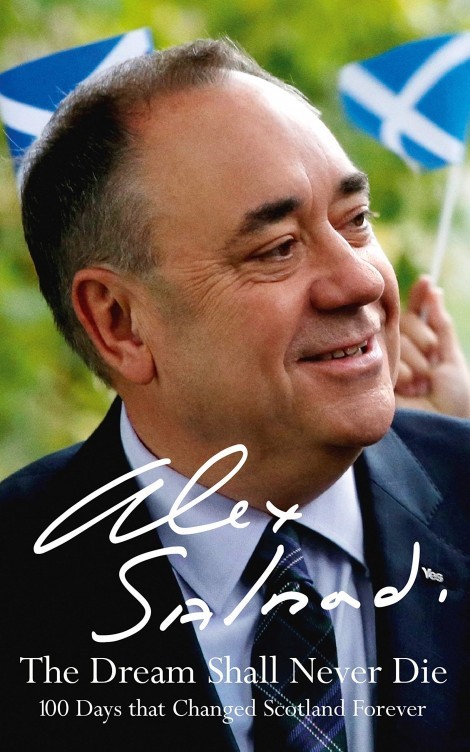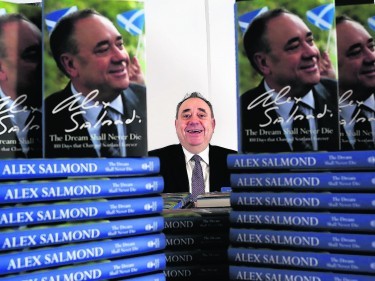Published by HarperCollins
Given the amount of column inches and broadcast time devoted already to Alex Salmond’s referendum campaign diary, many people may feel they have read it already. Indeed, there will be some readers of this newspaper who have heard quite enough from the former first minister, thank you very much.
There is nothing in this book that will change the opinions of those who do not care for the Aberdeenshire East MSP, a larger-than-life character who seems capable of inspiring devotion and loathing in
equal measure. But love him or hate him, this “big beast” of Scottish politics is not going anywhere.
The Liberal Democrats couldn’t even get through the first day of their spring conference in Aberdeen without his name ringing through the conference hall. Former leader Lord Paddy Ashdown offered his own (unprintable) critique of the book, while other politicians have also been scathing.
And the members of what Mr Salmond refers to witheringly as the “old media” – what he sees as the outdated written press – have been equally dismissive of the book. However, political journalists at national newspapers will have scoured the pages to see if they got a mention. Many are included, and not often in a positive light.
It does feel like Mr Salmond is taking the opportunity to settle a number of scores: the BBC, in particular, is lambasted for what he regards as a complete lack of journalistic balance in its coverage of the
independence issue.
US businessman Donald Trump does not fare well, either. Mr Salmond “cannot resist a wee pop”, claiming that the Mark Parsinen-designed “great Highland golf course” at Castle Stuart, Inverness, is “the antithesis” of Mr Trump’s Aberdeenshire course. He adds: “Mark loves golf; Donald loves himself”.
Some would argue Mr Salmond also loves himself, and he clearly enjoys recounting tales in which he gets the upper hand over rival politicians.
There are few of the current crop at Holyrood or Westminster whom he rates, certainly not the “three amigos” – David Cameron, Nick Clegg and Ed Miliband.
Former Labour leader Johann Lamont, however, is credited as being “worth 10 of” her successor, Jim Murphy. Personal attacks aside, this is a fascinating insight into the last months of the referendum campaign, which did not end as Mr Salmond would have hoped or expected
in the final days.
His side may have lost the battle, but as he points out, the campaign changed the nation and has led to an unprecedented level of engagement in politics north of the border. And Mr Salmond’s likely return to Westminster will also mean that there are many more chapters to come, whether his detractors like it or not.


